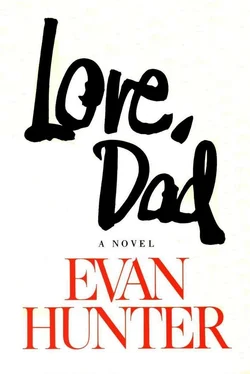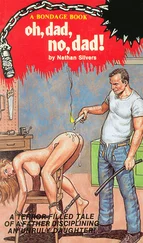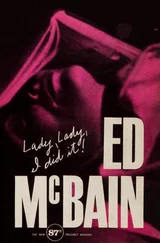Their quest was to meet other kids like themselves. Toward this end, they accidentally, but only accidentally, stumbled upon some of the city’s treasures: a glimpse of a trio of street troubadours wending their way around Piccadilly Circus toward Haymarket, caught on the periphery of their vision as they discussed the availability of pot with a girl from Scranton and two boys from Denver who were heading for Greece; an unexpected afternoon concert in the band shell at Hyde Park, where for one and threepence apiece they rented striped deck chairs on the lawn, but only because two “cute guys” were sitting nearby; the argument Barbara got into with one of the speakers at Hyde Park Corner, a lofty debate on world Communism (about which she knew next to nothing), solely to impress a pair of British sailors who stood nearby with their Winston Churchill pudding faces and their stained teeth bared in flirtatious grins.
They later strolled with the sailors along the docks by the Thames, the air redolent with the aromas of tobacco, spices, fruit and timber, but the bustle of activity did little to conjure for them the vast world beyond, from which these various commercial vessels had transported bananas and ginger, teak and madras, wheat and tea, and they preferred instead to ooh-and-ahh over the warship the boys proudly pointed out as their own. Before joining the navy, they had worked in the mills outside Manchester, young men Barbara and Lissie might instantly have told to bug off back in America, but the girls were inordinately fascinated by their droll Lancashire accents and accepted an invitation to tea at Queen Mary’s Rose Garden in Regent’s Park. The boys took them afterward to a place they thought their visitors from abroad might enjoy, a glorified hamburger joint called The Great American Disaster (It is, Lissie thought), and then strolled them through Soho, where they snickeringly pointed out the prostitutes lounging in shadowed doorways. Lissie was suddenly reminded of her father’s favorite Eliot poem, which he’d read to her in place of a bedtime story when she was only ten, and the lines “Let us go, through certain half-deserted streets / The muttering retreats / Of restless nights in one-night cheap hotels” — and simultaneously and guiltily remembered that she had not yet called home.
At a tobacconist’s shop in Dean Street, the boys showed them the jamb around the entrance door, where typed or handwritten notices in a widely understood (to Londoners) code advertised the sexual specialties of the various “ladies of the night,” as Jem, the older of the two sailors, knowingly called them, STRICT TEACHER LOOKING FOR OBEDIENT STUDENT or GOLDEN SHOWERS or FRENCH LESSONS, TEACHER FLUENT or the like, all of them gleefully deciphered by these worldly nineteen-year-old mill-workers from Oldham, who seemed singularly intent on confirming the adage that American “gels” fucked like “rebbits.” Their tactical approach was not lost on Lissie and Barbara, who declined a walk through St. James’s Park (“But it shuts down in an hour,” Horace, the other of the sailors urgently protested) and insisted instead that they get back to their lodgings by eleven because Lissie was expecting a call from home. Eleven in London was six in New York, and so the lie was a reasonable one, lost nonetheless on the Lancashire dolts, who were totally unaware of the intricacies of time zones.
They walked the girls back to the rooming house on Leinster Terrace, where, on the front doorstep, they kissed them lingeringly, ever hopeful of finding purchase in foreign waters. Horace, who kissed Lissie, tasted of very strong tobacco, undoubtedly distributed to her loyal seamen through the largess of Her Majesty the Queen. As the sailors wandered off into the crisp April night, Lissie found herself wondering where all that yellow fog was, the stuff that rubbed its back upon the windowpanes.
This was Sunday night, the nineteenth. She had last spoken to her parents on Thursday, from the Brenner dorm, telling them she was going to a Yale mixer for the weekend (she had deliberately chosen Yale, as her father’s alma mater) and would call them when she got back to Boston. She assumed she would be safe until tomorrow morning at least, but she knew she could not postpone the call indefinitely. Barbara’s alibi to the sailors now provided ample opportunity for her to pick up the phone in the hall downstairs and place a collect, transatlantic call to Connecticut (it was now only 6:30 P.M. there) but she delayed yet another time.
When she fell asleep that night, she was thinking of the World War II, fleece-lined, fighter-pilot’s jacket she’d bought at Railway Lost in Piccadilly, and wondering whether she’d ever get to wear it in Europe this summer.
As spring burst ingloriously on the British countryside in a torrent of rain distantly related to a monsoon in the long-lost colonial empire, Barbara and Lissie, wearing her fighter-pilot jacket over a T-shirt and blue jeans, morosely decided upon a hasty exodus from these dewy sceptered isles, and visited a travel agent in Berkeley Street to inquire about the cheapest fare to Spain.
They chose Spain only because the weather in Paris was as shitty as it was here in London, and they had heard it would be sunny and mild on the Costa del Sol. But as they made their inquiries of a pretty little blond girl with a marked Cockney accent and a miniskirt showing lace-edged panties above its precipitous hem, three boys standing at the counter with them quickly disabused them of any notion they’d had of spending a carefree and inexpensive, suntanned two weeks on a beach.
“The weather is fine there,” one of the boys told them, “but the Spanish attitude toward hippies absolutely sucks. I know guys who’ve been kicked off beaches on the Costa Brava only because their hair’s too long, would you believe it? And if those Fascist bastards catch you smoking pot, you’ll languish in a Spanish prison for the rest of your life. Whatever you do,” he said, “stay away from that fucking Spain.”
The British girl behind the counter, unused to such language in public places, partial to Spain because she’d spent a £50 all-inclusive two-week holiday there the summer before, snippily asked, “Did you wish to book then, or what?”
“We do not wish to book then,” Barbara said, and, together with the three boys, she and Lissie walked out into the pouring rain toward the nearest pub.
The boys were Americans, one of them a dropout from the University of North Carolina at Chapel Hill, another the son of a Philadelphia restaurant owner, the third a somewhat mysterious and taciturn young man with a scrubby, red, growing-in beard, a patchy uneven crewcut, and brooding brown eyes, who remained rather vague about where he came from or whither he was bound. His first name was Paul, and he offered his last name only when Lissie asked him what it was. Even then he hesitated before answering. “Gillis,” he said, “Paul Gillis.” He was wearing a rubberized, camouflaged poncho like the ones she’d seen at Railway Lost the week before, blue jeans, and sandals totally unsuitable to the rain outside. The rain oozed serpentinely along the pub’s front plate-glass window. On the jukebox, the Beatles were singing “Let It Be.”
The U.N.C. dropout spoke with a thick southern accent modified only when he was using hippie expressions like “far out” or “getting off,” national in flavor and therefore impervious to his drawl; he was the one who’d given them the initial information on Spain. His name was Robert Alston Chadwick, and his two friends called him Robby. Tall, blond and blue-eyed, sporting no beard but instead a mustache like a Hussar cavalryman’s, wearing a yellow rain slicker and a peaked baseball cap, he advised the girls that they should change their minds and head for Greece instead, via Amsterdam.
Читать дальше












